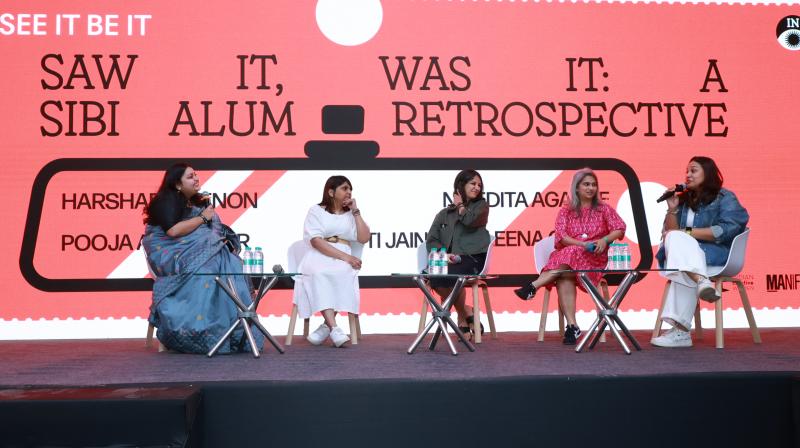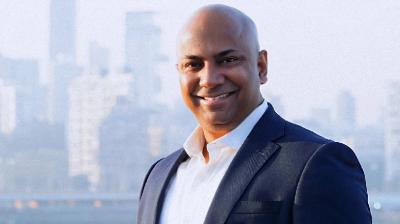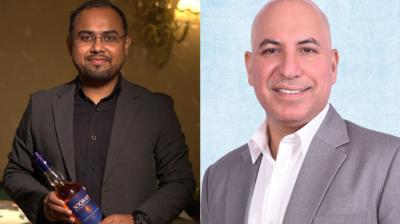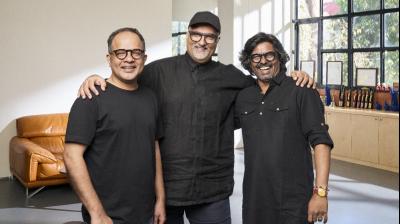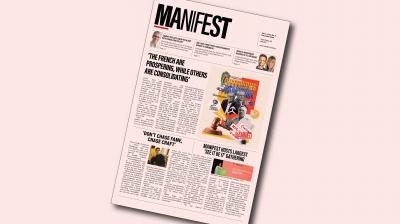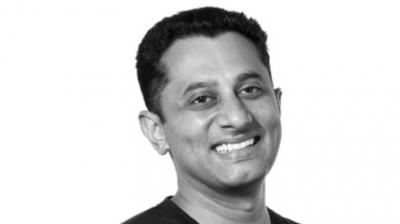The first Indian edition of Cannes Lions’ See It Be It programme, organised by Indian Creative Women and Manifest in association with Snowball Studios, unfolded in Mumbai on 14 November, bringing together alumni who have carried its influence back into their lives and careers.
Moderated by Leena Gupta, creative and founding member, Talented, the session, 'Saw it, was it: A See It Be It (SIBI) alum retrospective', gathered Harshada Menon, ECD, DDB Mudra; Manoti Jain, founding partner and COO, Kulfi Collective; Nivedita Agashe, GCD, Ogilvy; and Pooja Ambulkar, creative director, Accenture GN Song.
Gupta steered the conversation towards what the programme had unlocked: the insecurities it had softened, the horizons it had blown open, and the ways it had rewired their sense of leadership.
Jain got to the heart of why the SIBI experience still sits so close to her. What struck her most was the flattening of hierarchy.
“It really validated all my insecurities and really opened me up because I felt like a level playing field, like I can share my creative ideas with other people, and they are not looking down on me,” she said.
For Jain, the programme’s biggest gift was simple but life-changing: “It validated all my insecurities, and spoke to me saying that just bring yourself out there, and you're no less than anyone else who's building a business in India or globally.”
While Jain’s story was rooted in ambition and early leadership, Ambulkar’s came from an entirely different season of life. She arrived at SIBI carrying the emotional weight of new motherhood.
Ambulkar found comfort in the women around her, in late-night chats, in quiet check-ins, in a cohort that held space without judgment. “It was great. So ‘it's okay to be vulnerable’ is something that I still sort of keep with me.”
Agashe anchored the conversation in expansion, the kind that changes how you see the world. What she found there wasn’t just advertising discourse; it was an education in everything that surrounds and underlies the industry.
“It just opened up my world. It just broadened what I thought things were like. And it's not just about advertising, because I met women from all these other countries, people from all over the world in our cohort,” she shared.
Their conversations zigzagged across issues she hadn’t expected to confront at 24. Agashe remarked, “We didn’t just talk about advertising. We spoke about the pink tax. We spoke about objectification of women in porn with Cindy Gallop, who started MakeLoveNotPorn, and for someone who's just 24, 25, and all of this comes at you, you're like, wow, there’s so much more to learn.”
Agashe said the learning hasn’t stopped, not even a decade later. “I just learned a lot about the world in general, and people, and women when I went there, and I still keep learning, because I'm still in touch with a bunch of them, and follow each other on Instagram."
Jain explained how Indian conditioning had shaped her understanding of strength. “You see leaders being so strong and coming out there and not being emotional and not crying. Crying is looked at as being weak. And I, being a highly emotional person, struggled with that. However, Cannes shifted that belief system. I saw people crying and people sharing that emotion,” she said.
Jain also learned that it’s fine not to have all the answers.
“People didn’t have answers to everything. For me, it validated my insecurity that I don't need to have all the answers just because I have been put in this leadership position. I'm going to take my time to learn.”
Her takeaway was simple and strong: “Be your truest self, wear your skin, and it’s okay to cry as much as you have to, but put in the work.”
Ambulkar’s journey was about learning to stop shrinking her vulnerabilities. “Owning your vulnerabilities is something that should come naturally, and you should not shove it aside. You should not shy away from it,” she shared.
Ambulkar also noted that she had spent years being shaped by industry expectations. “All this while you are told that you are in advertising, don’t be a drama queen, don’t be a girl. It got me thinking that you can be a strong leader with your vulnerable side. That was something which was, I repeat, the inflexion point,” she remarked.
Menon shared a single line she’s never forgotten from SIBI. She voiced, “I think Madonna Badger (chairperson and ambassador for Cannes Lions' 'See It Be It' mentorship initiative and founder, CEO, and COO, Badger Agency) said this to us, that power is like love, it's like care, and it's infinite. So we don't have to fight for that seat at the table.”
Jain shifted the conversation to the idea of scale and how the programme expanded her world. “Collaboration was massive after SIBI,” she said. “I went out and reached out to 250 creative directors all over the world, and we worked with them. I’ve spent the last seven years learning from global creative minds. Knowledge transfer is huge. You can learn from the frameworks and tools creative directors are using globally, and you can ask for that knowledge.”
Her biggest lesson was direct: “Collaborate, collaborate, collaborate. You cannot win alone in your journey, wherever you are. You need allies, you need partnerships, and you need collaboration in the truest form ever.”
But beneath the hacks was a quieter truth that kept surfacing: people matter more than any industry strategy takeaways. Agashe continued the conversation on unity. She voiced, “It is all about collaboration, but more than collaboration, I want to say that the one thing I’ve really learned after SIBI is that people matter the most. Even as a creative director, I try to connect with my team as people, and we work better that way. Be with good people, you just do better.”
Menon picked up that thread with something that sounds obvious but rarely comes naturally in high-pressure rooms. She sees this play out especially in negotiations. “Don’t say, ‘give me a number, here is my number, and I won’t budge.’ Say, okay, you have said a number, now I will say a number, and now let’s try to find a middle ground. Treat it like a proper negotiation. You want both parties to walk out thinking they have won,” Menon advises.
The conversation then steered towards “crying,” and the room shifted from laughter to a quiet, familiar understanding as it was an integral part of the SIBI experience.
Jain shared that crying had derailed negotiations, made her feel small, and left her second-guessing herself. But SIBI flipped that. “After SIBI, I embraced it,” she said. “Cry it out. Finish that feeling. Feel it and let it go through your system. It is a massive tool for you.”
Ambulkar chimed in with her own memories, shared tears, shared growing up, shared relief. “After crying, you feel lighter, get a little more clarity. Things are not foggy in your head. Crying is okay. Somebody crying at the workplace is also okay. It just means that I can’t process things. It’s too much to carry on. So it’s okay for those breakdowns to happen. Not showing your vulnerable side again, that's a scam by patriarchy which should be, I think, accepted and embraced.”
The conversation shifted to what happens after the high of Cannes when real life and leadership meet. Menon voiced a feeling every woman in the room recognised. “I think motherhood has made me very, very strong and very, very weak at the same time,” she said. “If you feel like laughing, bothering someone else, it's their problem. You need to live in the moment.”
But Menon admitted to a lingering fear. “When my team sees me crying or weak, do they kind of worry that this is not good news?” It was a quiet, familiar doubt that didn’t need explanation", she noted.
To counter that, Jain stepped in with her favourite story, her long arc with Spotify. “It was 2019… I got selected for See It Be It,” she said. Her mentor was Danielle Lee, then VP, brand solutions, Spotify. “I told her, I really want to run the India business. I know you don’t believe me right now, but I will win that account, and I will write to you.”
Back in India, reality stung. “We lost the presentation. I was like, What the hell? Why did we lose it?” But Jain stayed with the dream. “I realised the difference between something impossible and something possible is just opening the door a little more and pushing through.”
Three years later, the agency won the Spotify account. “I wrote to Lee —hey, listen, I did it.” But for Jain, the lesson mattered more than the win. “When someone says something is impossible, keep the window or the door slightly open and push through. That little bit of pushing will get you somewhere.”
When the conversation turned to what SIBI leaves behind, Agashe had a simple answer. “If you ask me for a tangible thing, I would say this seat,” she said. “It’s been 10 years, and I’m still in touch with SIBI. Whoever goes there, it just feels great.”
Jain added a final personal note, one she had rediscovered the night before. “When I was told I’m going to be on this panel, I opened my book from 2019,” she concluded. “I had written: I’ve got to get See It Be It to India. And I didn’t follow through. Some strong women here did. Because in the end of it all, you need your girls. You need them at home, at work, and everywhere else.”

.jpg)
